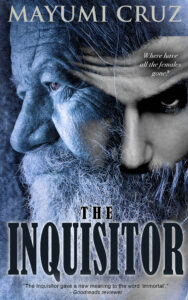How to Title a Story
Did you know that there’s a GATEWAY to your story? Nope, it’s not your name — unless you’re Stephen King or J.K.Rowling.
It’s the TITLE of your story.
In the world of storytelling, your title is your story’s calling card.
It’s the first taste of what’s to come, and it can leave a lasting impression. Crafting the perfect story title takes time, creativity, and careful consideration of your story’s essence.
How to Title your Story: Gateway to Your World
The art of storytelling is a fascinating and powerful endeavor. But before your readers can immerse themselves in your narrative world, they encounter the gateway to your story: the TITLE.
Crafting the perfect story title is a skill that can make or break your work’s reception and success.
Let’s explore the art and science of titling a story.
The Power of a Great Title: How Important is the Title of your Story?
A title is not just a name; it’s a promise.
It’s the first impression your story makes on potential readers or viewers.
A great title has the power to:
- Capture Attention: A compelling title piques curiosity and entices people to explore your story further.
- Set the Tone: It provides a hint of the story’s mood, genre, or theme, preparing the audience for what’s to come.
- Establish Identity: A memorable title can become synonymous with your work, making it instantly recognizable.
- Enhance Discoverability: In the digital age, a well-chosen title can improve search engine rankings and attract a broader audience.
- Evoke Emotion: It can stir emotions or provoke thought, sparking a deeper connection with your audience.
Tips on Titling a Story
Once we understand the significance of a good title, here is the process of crafting one.
Understand Your Story
Before you can title your story, you must have a clear understanding of its essence. Ask yourself:
- What’s the central theme? Identify the core message or idea your story conveys.
- Who are the main characters? Consider highlighting a character’s name or a defining trait.
- What’s the genre? Genres often have specific conventions for titles; make sure your title aligns with them.
- What’s unique about your story? What sets it apart from others in the same genre?
Explore Different Approaches
There are various strategies when brainstorming titles:
- Descriptive Titles: These titles directly describe the story’s content. Examples include “The Great Gatsby” or “The Girl with the Dragon Tattoo.”
- Metaphorical Titles: Metaphors and symbolism can add depth and intrigue. Think of “The Catcher in the Rye.”
- Character-Centric Titles: If your story revolves around a compelling character, consider using their name, like “Harry Potter.”
- Quirky Titles: For humor or to convey a unique tone, playful titles can work wonders.
- Mystery Titles: Tease the audience with an enigmatic title that hints at a central mystery, like “Gone Girl.”
Keep it Concise and Memorable
A good title is concise and easy to remember.
Avoid long, convoluted titles that may confuse or deter potential readers. Aim for brevity while still capturing the essence of your story.
Seek Feedback
Don’t hesitate to bounce title ideas off friends, writing groups, or beta readers.
Fresh perspectives can lead to title improvements you might not have considered.
Check for Originality
Perform a quick search to ensure your chosen title isn’t already in use by another popular work. You want your title to be unique and avoid confusion.
Be open to Revision
Just like your story itself, your title may evolve. Be open to revising it as your story takes shape. Sometimes, the perfect title reveals itself later in the creative process.
How to Title a Story: Checklist
Creating a Great Story Title Checklist
- Know Your Story
• Understand what your story is about.
• Think about the main characters and what’s special about them.
• Figure out if your story fits into a certain type, like mystery or adventure.
• Know what makes your story different from others. - Try Different Ideas
• Think of titles that tell people what your story is about.
• Consider titles with cool-sounding words or hidden meanings.
• If there’s a really important character, maybe use their name in the title.
• If your story is funny or unique, a fun title could work.
• If there’s a mystery in your story, use a title that makes people curious. - Keep it Short and Easy
• Make sure your title is not too long or complicated.
• Choose words that people can remember and say easily. - Get Feedback
• Share your title ideas with friends or other writers.
• Be open to their suggestions to make your title better. - Check if it’s Original
• Make sure your title isn’t already used by a famous book or movie.
• Use a unique title to avoid confusion. - Be Willing to Change
• If your story changes, be ready to change your title too.
• If you find a better title while you’re working, go for it. - See if it Fits
• Make sure your title matches what your story is all about.
• Check if it represents your story well. - Think About Online Search
• Consider if people can easily find your story online with your title.
• Make sure it shows up in search engines and on social media. - Ask Different People
• Get opinions from different people to see if they like your title. - Final Check
• Look at your title one last time to make sure it’s clear, right for your story, and easy to remember.
Conclusion: How to Title your Story
Creating a great story title is important because it’s the first thing people see.
Take your time and make sure your title matches your story and makes people interested in reading or watching it.
Don’t rush the process. Experiment, seek feedback, and let your title shine as brightly as your narrative itself.
Getting to Know Pinoy Indie Authors
I truly feel Pinoy (Filipino) Indie Authors are underrated and, most times, under appreciated. In support, I am resuming my interviews with Pinoy Indie Authors.
In addition, I have also created a Facebook Page and a Facebook Group specifically dedicated to empowering and equipping Pinoy writers to write, publish, and promote their books.
If you’re a Filipino indie author or writer, come join us! You’re welcome — whether you write in English, Taglish, or Tagalog. We’re all in this together!
Did you know I wrote a Dystopian Dark Fantasy Horror?
I hope you can check it out – it might just be worth your time!

THE INQUISITOR
THE INQUISITOR: A DYSTOPIAN DARK FANTASY HORROR is a story of a young man's quest to uncover the truth behind a past that is best forgotten.




